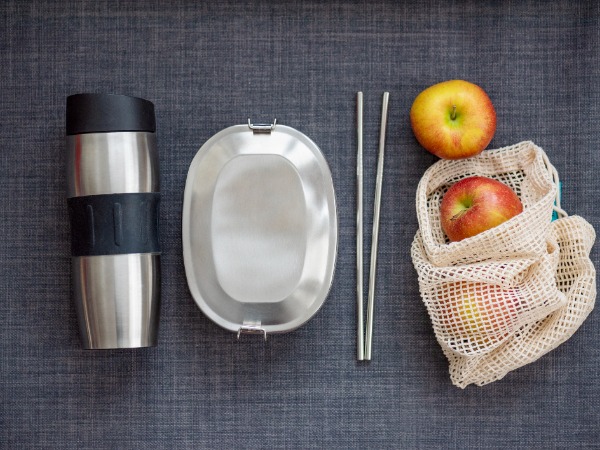
While we might enjoy the convenience of plastic bags, disposable water bottles, and all the inventions made with plastic, the sad fact is that plastic waste is filling our landfills, creating problems for wildlife, and polluting our planet.
According to the U.S. Environmental Protection Agency, most plastics require up to 400 years to break down at a landfill. Meanwhile, we are using more and more each year. Since large-scale production ramped up in the 1950s, only 9% of plastics have been recycled and 12% have been incinerated. This leaves about 79% of the 8.3 billion metric tons produced sitting in landfills or littering our lands, oceans, and waterways.
We need to work together to beat plastic pollution. Here are three simple steps to take now.
Action 1: Reduce your use of single-use plastics (plastic items that are only used one time).
• Use reusable cups or refillable water bottles instead of disposable plastic water bottles.
• Purchase soft drinks in aluminum cans instead of plastic bottles. Aluminum cans are infinitely recyclable.
• Use reusable shopping bags instead of disposable shopping bags.
• Use reusable utensils instead of disposable plastic forks, knives, and spoons.
• Carry your own washable straw or enjoy your drink without a straw to avoid using plastic straws.
• Use reusable containers instead of disposable plastic bags to store food.
• Use reusable containers and an insulated lunch bag.
Action 2: Keep plastics out of landfills and nature.
• Repurpose plastic items. Can that plastic tub be used for storage or something else? Check for creative reuse ideas on the internet.
• Recycle your plastics. By recycling plastics, we reduce the use of virgin materials and create less waste. Be sure to check with your local solid waste authority to know which plastics are recycled in your community.
• Donate unneeded plastic items, such as utensils, plates, and cups, to a church or charity for use at an event. Don’t just throw away extras you have left over after a party.
• Never litter!
Action 3: Change the way you think about plastic.
• Do you need to use a single-use plastic bag when you already have washable storage containers?
• Do you need plastic utensils, especially if you are taking carryout food home to eat? Decline the plastic utensils and bring reusable serviceware with you.
• Do you need a case of water bottles? Or could you save money (and reduce waste) by putting a pitcher of water in the fridge and filling a reuseable bottle or glass?
• Look at the plastic items you use every day and ask yourself how you might reduce, replace, or reuse them.
Photo credit: Rocky89 | iStock | Getty Images Plus
